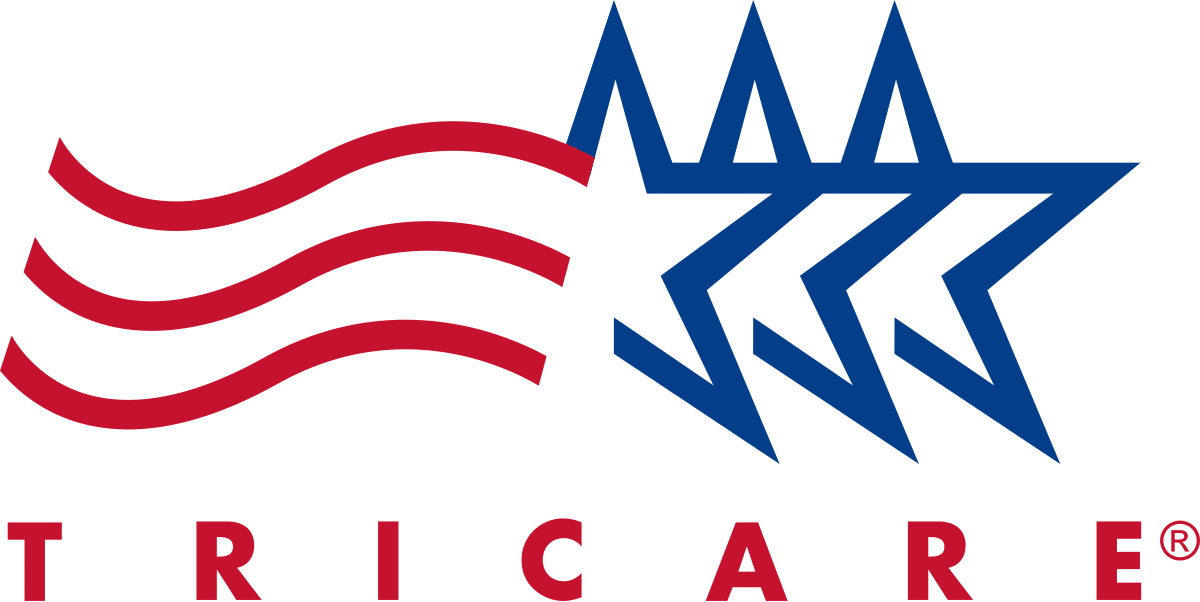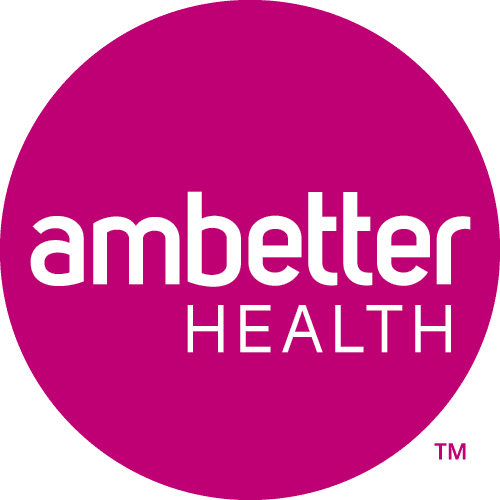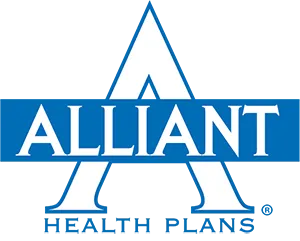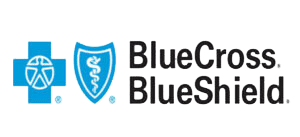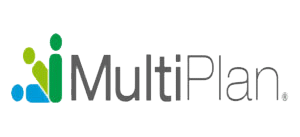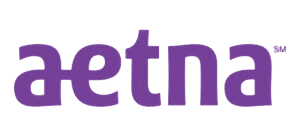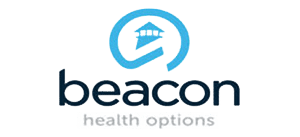Tricare Rehab Center in Rome, GA
Tricare Rehab Center in Rome, GA

At Fairland Recovery Center, we are in network with Tricare and also work with other insurance providers, including Cigna, Optum plans (Oscar, UnitedHealthcare, and UMR), Mending Health, Ambetter, and Alliant.
Fairland Recovery Center’s Tricare drug rehab center in Rome, GA, helps service members and their families overcome addiction.
Tricare is a healthcare program for U.S. military members, veterans, and their families. It offers medical coverage to over 9 million people. Tricare provides many health services, including doctor visits, hospital stays, and mental health care.
The Military Health System, part of the Department of Defense, runs Tricare. Tricare works with civilian health care providers to provide care to service members and their loved ones. This allows people to get treatment at military hospitals and clinics, as well as approved civilian doctors and facilities.
Tricare covers substance abuse treatment, too. Tricare also works with drug rehab centers nationwide. Centers like ours give vital support to those dealing with substance use problems.
Overview of Tricare
Tricare provides health coverage to active duty members, their families, and military retirees. It offers different plans to meet diverse needs. The program has roots in military medical care and operates as part of the wider Military Health System.
Tricare Program Origins
Tricare began in the 1990s as a military health care system reform. It replaced the old CHAMPUS program. The goal was to improve access to care and control costs.
Key features of Tricare include:
- Choice of plans
- Network of civilian providers
- Coverage for preventive care
- Pharmacy benefits
The program has grown over time. It now serves millions of beneficiaries worldwide.
The Military Health System
The Military Health System (MHS) is the larger framework that includes Tricare. It is run by the Department of Defense (DoD) and aims to keep service members ready for duty and care for their families.
The MHS includes:
- Military hospitals and clinics
- Tricare health plans
- Research and development programs
In 2013, the DoD created the Defense Health Agency (DHA). The DHA now manages Tricare and other MHS functions. This change aimed to improve efficiency and cut costs.
The MHS faces challenges like rising health care costs. It works to balance quality care with budget constraints.
Tricare Coverage Options
Coverage with Tricare offers several health plan options, but these plans vary in cost, policy, and eligibility requirements.
Tricare Prime
This form of Tricare is a managed care option similar to civilian HMOs. It’s available to active duty service members and their families.
Key features:
- No annual deductible for most beneficiaries
- Low out-of-pocket costs
- Requires enrollment
- Uses a primary care manager (PCM) for coordinated care
Prime members must get referrals and authorizations for specialty care. This plan offers the most affordable and comprehensive coverage.
Active-duty service members are automatically enrolled in Tricare Prime, and their family members can choose to enroll as well.
Tricare Select
Tricare Select is a fee-for-service option that offers more flexibility than Prime. It’s available to most Tricare-eligible beneficiaries who are not on active duty.
Select features:
- No referrals are needed for most services
- Freedom to see any Tricare-authorized provider
- Higher out-of-pocket costs than Prime
- Annual deductible and cost-shares apply
Beneficiaries can see network or non-network providers. Using network providers results in lower out-of-pocket costs.
Select is a good choice for those who want more provider options and don’t mind higher costs.
Tricare Reserve Select
Tricare Reserve Select is a premium-based health plan for qualified members of the Selected Reserve.
Plan details:
- Monthly premiums required
- Similar coverage to Tricare Select
- Available worldwide
- Covers both medical and pharmacy benefits
Members must not be eligible for or enrolled in the Federal Employees Health Benefits program, and they cannot be on active duty orders.
Reserve Select helps ensure that reservists have continuous health coverage when not on active duty.
Tricare for Young Adults
Tricare Young Adult extends coverage for adult children of Tricare-eligible sponsors until the child turns 26.
Program specifics:
- Two options: Prime or Select
- Full Tricare coverage
- Monthly premiums required
- No parental support is required
Young adults must not be eligible for their employer-sponsored health coverage. They also can’t be married.
This program helps young adults maintain Tricare coverage as they transition to adulthood and independence.
Tricare Enrollment and Benefits
Tricare offers health coverage options for military members and their families. Enrolling in Tricare and understanding its benefits can help you make informed healthcare decisions.
Enrollment Process
To enroll in Tricare, you must first register with DEERS. DEERS is the Defense Enrollment Eligibility Reporting System.
Once registered, you can sign up for Tricare through the Beneficiary Web Enrollment website. This site lets you choose from various Tricare plans.
Eligible plans include Tricare Prime, Tricare Select, and others based on your status and location.
To enroll, you’ll need to:
- Log in to milConnect
- Click “Manage Health Benefits”
- Select your desired Tricare plan
- Choose family members to enroll
- Review and confirm your selections
Tricare Open Season
Tricare Open Season happens once a year. It usually runs from early November to early December.
During this time, you can:
- Enroll in a new Tricare plan
- Change your current plan
- Add or remove family members from coverage
If you miss Open Season, you’ll need a Qualifying Life Event (QLE) to make changes. QLEs include marriage, birth of a child, or moving to a new location.
The Defense Health Agency manages Open Season. They send reminders and provide information about plan options and changes.
Evaluating Benefits and Costs
Tricare plans offer different benefits and costs. It’s essential to compare them carefully.
Key factors to consider:
- Monthly premiums
- Annual deductibles
- Copayments for services
- Coverage for specific treatments or medications
Tricare Prime often has lower out-of-pocket costs but requires you to use network providers. Tricare Select gives more provider flexibility but may have higher fees.
When choosing a plan, review your healthcare needs and budget. Consider factors like how often you visit doctors and any ongoing health conditions.
Service Providers and Facilities
Tricare offers medical care through various facilities and providers. The options include military hospitals, clinics, pharmacies, and civilian providers in the Tricare network.
Military Hospitals and Clinics
Military hospitals and clinics are the main places for active-duty service members to get care. These facilities are run by the Department of Defense (DOD) and offer a wide range of services, from basic checkups to major surgeries.
Many military hospitals have special units for combat injuries. They also treat families of service members. In some cases, retirees can get care at these hospitals too.
Military clinics focus on outpatient care. They handle things like physicals, shots, and minor health issues. Clinics are often located on military bases for easy access.
Military Pharmacies
Military pharmacies are a key part of Tricare’s health services. They give out prescription drugs at no cost to eligible patients and are usually found in military hospitals and clinics.
The pharmacies stock a wide range of medicines. This includes both brand-name and generic drugs. They also offer over-the-counter items that doctors prescribe.
Military pharmacies often have shorter wait times than civilian ones. They use advanced systems to fill prescriptions quickly, and some even offer home delivery for certain medicines.
Network and Non-Network Providers
Tricare works with many civilian doctors and hospitals. These are called network providers. They agree to accept Tricare’s payment rates.
Network providers offer a range of services, including primary care, specialist visits, and hospital stays. Using these providers usually costs less for patients.
Non-network providers don’t have a deal with Tricare. Patients can still see them, but it may cost more. In some cases, Tricare may not cover care from non-network providers.
Tricare has tools to help find network providers. This makes it easier for patients to get covered care.
Services and Programs Covered Under Tricare
Tricare offers a comprehensive range of addiction and mental health programs designed to support active-duty military personnel and their families. These services aim to address various substance use disorders and mental health issues, providing necessary treatment options to promote recovery and overall well-being.
Detoxification Services
For individuals struggling with alcohol or drug addiction, Tricare covers essential detox services, including medical detoxification. Detox is a critical first step in the addiction recovery process, allowing the body to withdraw from substances while managing withdrawal symptoms safely. Treatment options typically vary from short-term support to longer stays, encompassing detox facilities in Georgia, Atlanta, and other locations. Patients often experience detox lasting typically between 1 to 3 days, depending on their specific needs.
Inpatient and Outpatient Treatment Options
Tricare facilitates both inpatient and outpatient treatment programs across various treatment centers. Inpatient care or residential treatment offers an immersive recovery environment where individuals can focus entirely on recovery in a secure setting. This is especially beneficial for severe dependency cases, where a structured approach typically lasts 2 to 6 weeks.
Outpatient programs include intensive outpatient programs (IOP) and partial hospitalization. These programs allow patients to receive treatment while maintaining their daily responsibilities. Typical outpatient treatment services generally last 1 to 2 weeks, making them a flexible option for many patients.
Dual Diagnosis Treatment
Understanding that many individuals struggling with substance use may also face mental health disorders, Tricare provides dual diagnosis treatment. This approach integrates care for both mental health issues and substance use disorders, enabling more effective recovery through tailored treatment plans. Professionals at Tricare treatment facilities utilize evidence-based therapies and holistic methods to address the complexity of dual diagnoses.
Support and Aftercare Services
Post-treatment support is vital for long-term recovery, and Tricare emphasizes the importance of aftercare programs. Aftercare could involve attending support groups, ongoing outpatient rehab, or engaging in sober living environments. These services help maintain recovery gains and provide a strong support system for individuals transitioning out of more intensive treatment.
In addition to the various levels of care, Tricare offers coverage for tailored treatment plans that include medication-assisted treatment for those battling addictions to substances like opiates. Medications such as methadone are often integral to treatment processes in conjunction with behavioral therapies.
Take Charge of Your Recovery Journey
If you’re seeking a path to healing, it’s crucial to connect with a qualified treatment provider who can guide you through your recovery journey. Your insurance plan, whether it includes military insurance or broader health insurance options, can significantly impact your access to necessary services.
Don’t let concerns about insurance coverage stand in your way. Reach out to Fairland Recovery Center and learn how we can help you navigate your options and maximize your benefits. Take the first step toward a healthier future by calling us at 770-797-7652.
Other Admissions
-
Insurance & Payment Options for Rehab in Rome, GA
-
Aetna Drug Rehab
-
Cigna Drug Rehab
-
United Healthcare Rehab
-
Humana Drug Rehab
-
Anthem Drug Rehab
-
Tricare Rehab
-
BCBS Drug Rehab
-
Beacon Health Options Drug Rehab
-
Alliant Drug Rehab
-
UMR Health Rehab
-
Magellan Health Drug Rehab
-
ComPsych Drug Rehab
-
Horizon Drug Rehab
Find Help Now
We accept most major insurances
